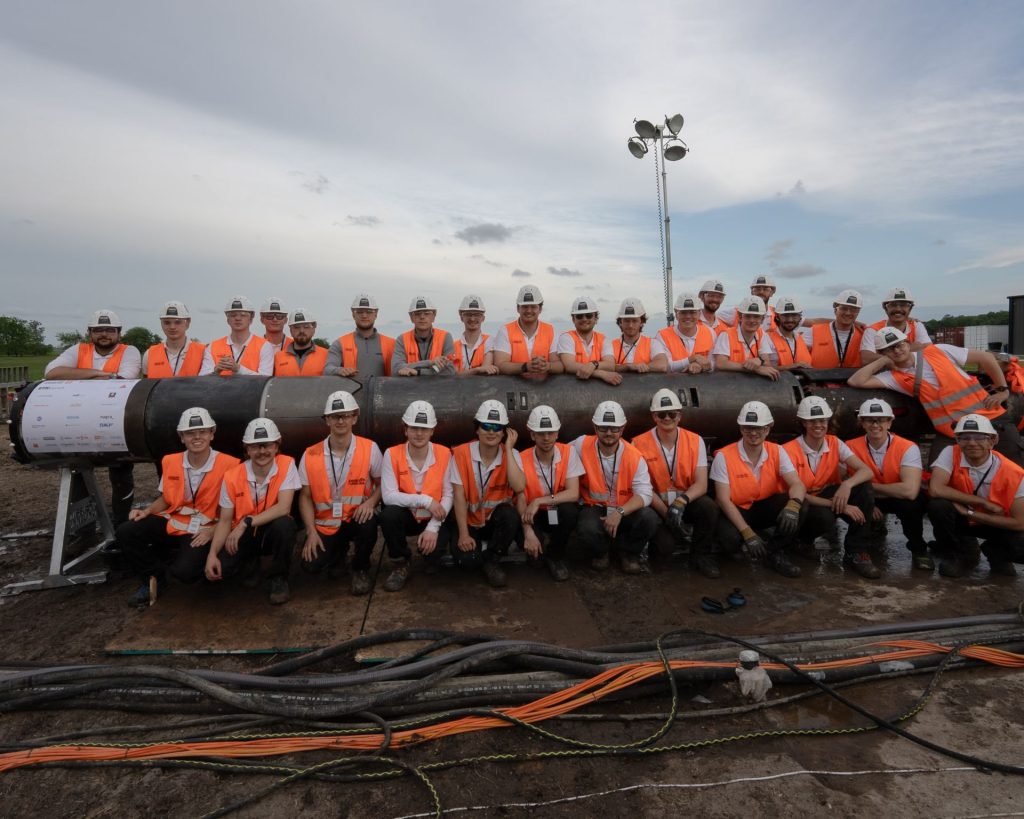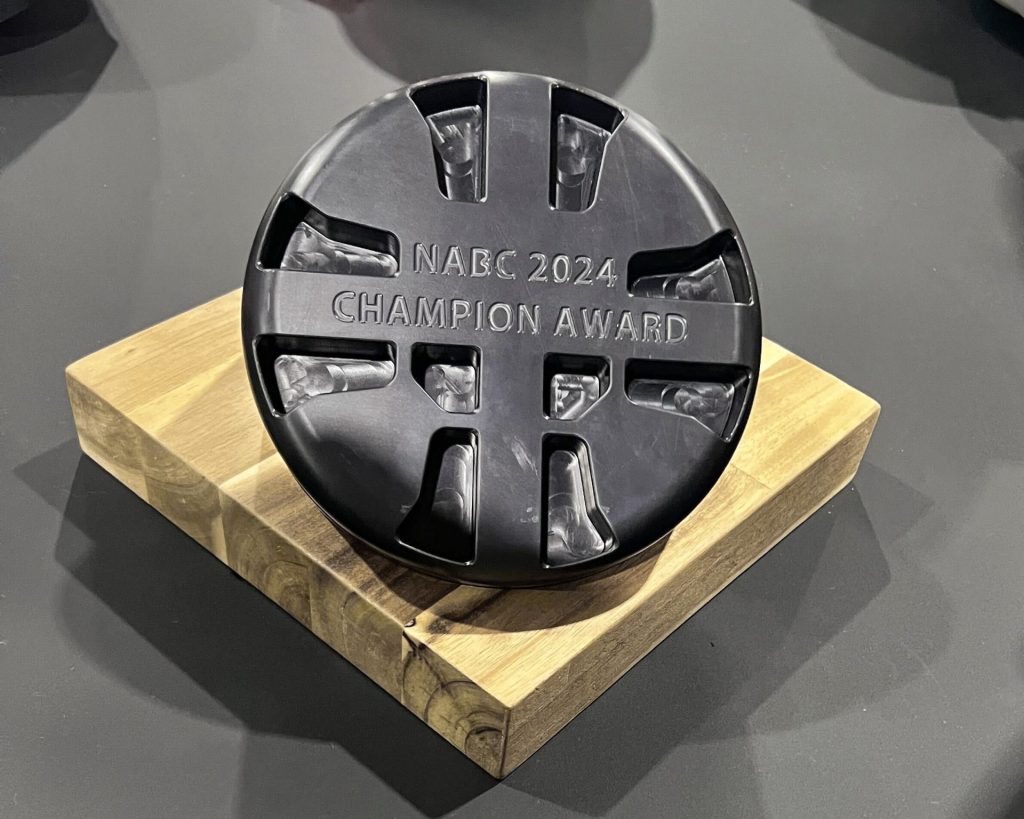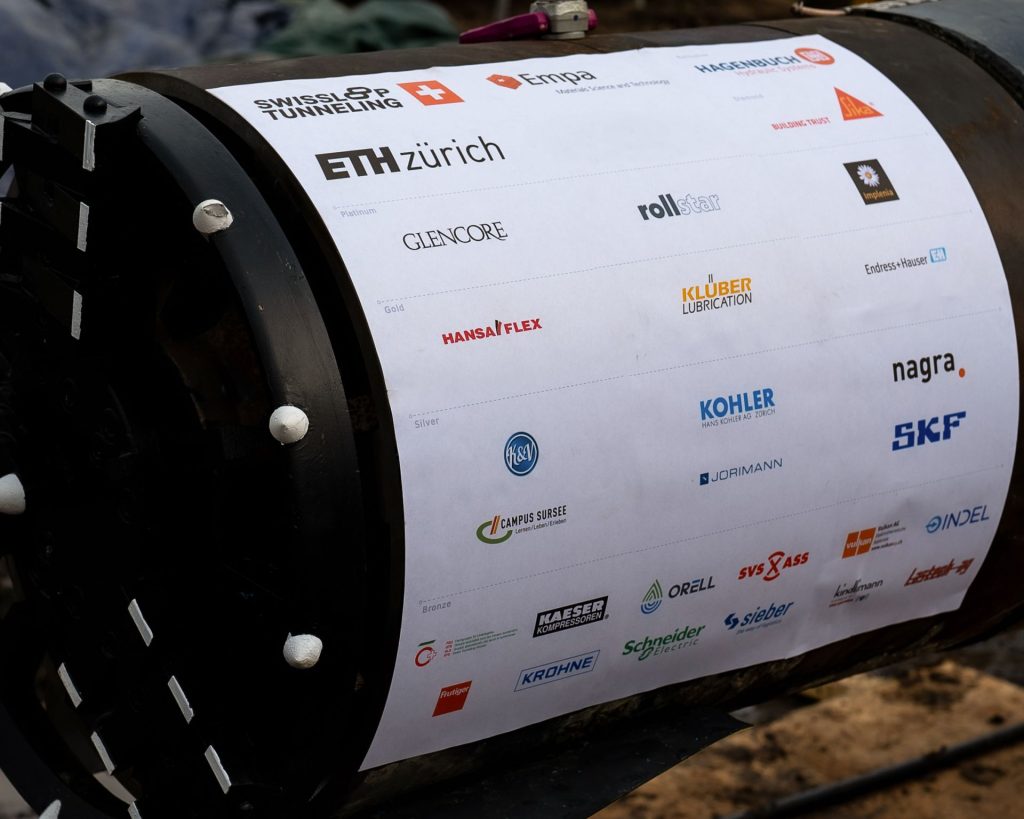Swissloop Tunneling, a team of students from ETH Zurich and other Swiss universities, has won the Not-a-Boring Competition 2024 with its 3D printing-enabled tunneling technology. The competition was hosted in Bastrop, Texas by The Boring Company, a tunneling firm headed by SpaceX founder Elon Musk.
Swissloop Tunneling placed first overall and received the prestigious Champion Award. Their Micro Tunnel Boring Machine (MTBM), called Groundhog Beta, can simultaneously 3D print the supporting tunnel walls during the digging process.
Previously, Swissloop Tunneling placed second overall and won the competition’s Innovation & Design Award in 2021 and 2023. The team’s initial boring system, called Groundhog Alpha, has received upgrades to its erosion system and 3D printing mechanism to form the new Beta variant.
“Everyone at Swissloop Tunneling couldn‘t be prouder of what we have achieved throughout our journey, and of what our bright future holds for us,” stated the Swissloop Tunneling team in a LinkedIn post.

Elon Musk’s Not-a-Boring competition
The Boring Company’s first tunneling competition was announced back in the summer of 2020. The event focuses on building small-scale boring machines that can dig a 30-meter-long, stable tunnel with a diameter of 50 cm.
At the first competition, held in the Nevada desert in 2021, more than 400 teams applied to take part. 12 finalists, including Swissloop Tunneling, were selected to put their tunnel boring machines to the test.
Elon Musk’s interest in boring is driven by his goal to create new underground transportation networks. One concept, called Hyperloop, proposes the creation of vacuum-filled tunnels, within which vehicles could travel at up to 1000 km/h (600 mph).
However, this project has since been shelved, with The Boring Company instead building the Las Vegas Loop. Through this tunnel, passengers are transported with autonomous Tesla cars between five stations over a distance of 1.7 miles.

Tunnel boring boosted by 3D printing
Swissloop Tunneling believes that high costs and challenging logistics are the two key barriers currently facing the tunneling industry. Currently, tunnel boring machines and lining parts are heavy and need to be transported over long distances to the tunnel construction site.
The team’s primary goal is to make tunneling more sustainable, cost-effective, and faster than is possible with current methods. The team ultimately hopes that the financial and time savings offered by its novel boring technology will help engineering firms meet complex infrastructure requirements.
The team’s 3.5-tonne Groundhog Beta MTBM measures 8.15 m in length and has a diameter of 0.606 m. It can bore at speeds of up to 1 mm/s. Although small in size in its current state, Swissloop Tunneling states that its system can be increased in size to deliver large-scale tunneling projects in the future.
Central to the Groundhog Beta is its ability to 3D print a tunnel wall liner during the digging process. The system leverages photopolymer granules which are melted, extruded, and then quickly cooled to form strong, 15 mm-thick pipes which line and secure the tunnel walls.
The 3D printable polymer has been designed to withstand the boring machines’ propulsion forces and the pressures of the surrounding earth during the digging process.
Building on the Groundhog Alpha, the 3D printed wall liner has been designed to offer improved reliability and performance. Superior heating elements were installed into the new system. Additionally, more sensors and an active air-cooling system were added to protect the machine’s other subsystems from overheating.
In the coming years, Swissloop Tunneling aims to increase the size of its boring machine prototypes and make its 3D printing-based tunnel liner mechanism marketable. The team is confident that its technology will form the basis of new boring technology in the future.

ETH Zurich advancing construction 3D printing
Away from tunneling, ETH Zurich researchers have leveraged 3D printing to complete other construction projects.
In 2021, architects and engineers from ETH Zurich’s Block Research Group used 3D printing to construct a concrete footbridge that uses significantly less material than conventional methods. Called “Striatus,” the structure was developed in collaboration with Zaha Hadid Architects, concrete 3D printing specialist Incremental3D and building materials firm Holcim.
According to the ETH team, this structure was the first ever 3D printed unreinforced concrete bridge. Made from 3D printed concrete blocks that are self-supporting, the bridge does not need mortar to hold together. As such, the blocks can be dismantled and reassembled again at different locations. The 3D printed material can also be recycled if the structure is no longer needed.
ETH Zurich researchers have also combined 3D printing with casting methods to develop an “eggshell” concrete 3D printing process. This method employs large-scale robotic Fused Deposition Modeling (FDM) 3D printing and the simultaneous casting of a fast-hardening, set-on-demand concrete.
This approach can reportedly enable the production of complex structures in a material-efficient way. In collaboration with German engineering firm Basler & Hofmann, the researchers used this method to fabricate a large-scale concrete tree model.
What does the future of 3D printing hold?
What near-term 3D printing trends have been highlighted by industry experts?
Subscribe to the 3D Printing Industry newsletter to keep up to date with the latest 3D printing news.
You can also follow us on Twitter, like our Facebook page, and subscribe to the 3D Printing Industry Youtube channel to access more exclusive content.

